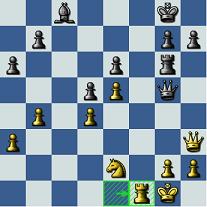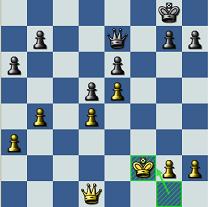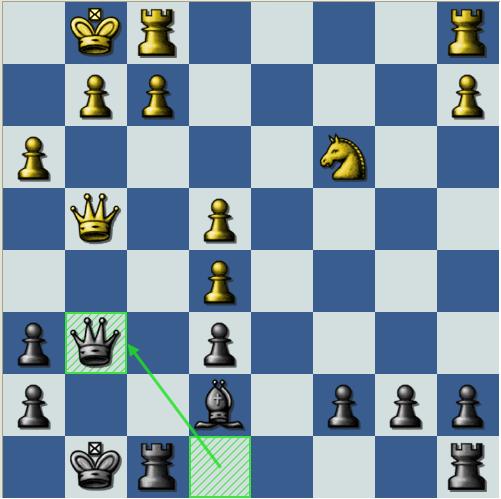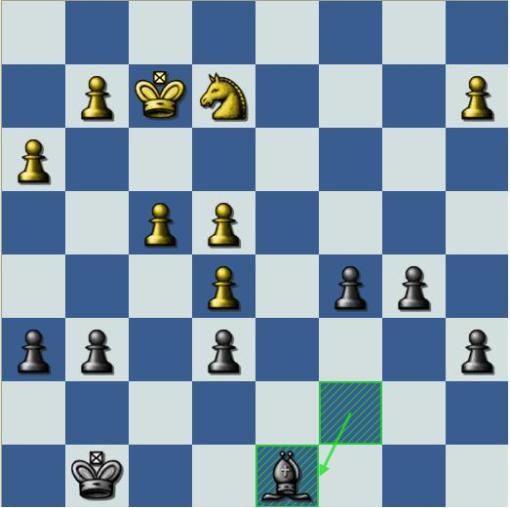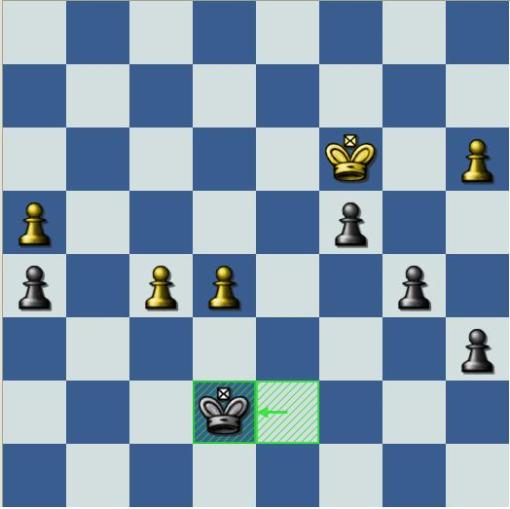I participated in the big tournament on December 19-21. It was affected by the heavy snow, that’s why the name of the post.
Nevertheless, it was a great event.
I played almost a section up, being close to the bottom of U2000. I had no choice, as another section was U1600. My last local tournament, which went well for me with 1 win, 3 draws and performance rating 1700+, kind of encouraged me to play.
The night before the tournament I woke up at 5am and couldn’t sleep anymore. Thoughts about losing all the games, etc. were occupying me.
We had heavy snow on the first day, Friday. Several people cancelled or took byes, I came of course.
Before the tournament I looked at the pre-registered list, defined a few possible opponents for the first round and looked-up their names in the DB. I found that 2 of them played Sicilian dragon, so I decided to get more experience with Moscow variation – 1. e4 c5 2. Nf3 d6 3. Bb5+ …
I played it OTB once and lost to the higher rated player. So, I started correspondence game with that opening, playing Maroczy bind line – 1. e4 c5 2. Nf3 d6 3. Bb5 Bd7 4. Bxd7 Qxd7 5. c4 …
My opponent managed to strike d5 at some point, I got worse then, but it was a very good idea to try it.
Round 1
I play with the guy about 18, rated 250 higher than me. I think, his name was on that candidate list.
I start 1. e4 and he plays Sicilian d6 variation. OK, so I play Moscow variation, Maroczy bind. He plays very confidently, I play safely, so it goes until about move 10. Then I notice that there is actually no real danger, his pieces are pretty passive. My pieces are centralized, my wall b3-c4-e4-f3 looks like granite, no chance of him striking b5 or d5. I create a pressure on his e7 pawn, then I play f4. He goes for exchanging his knight for my g5 bishop. Sounds good, Bg7 will have no opponent, but fxg5 opens the “f” line and my queen and rook are attacking his weak square f7. The pressure quickly increases. I move my “h” pawn until it reaches “h6”, bishop “g7” exchanged before, non-pleasant threats and he has to give up a pawn after exchanging queens. It comes to 2R vs. 2R endgame, with me having pawn majority on the queenside. Finally I get passed pawn “c”, he is defending. He offers a draw, I refuse. After a few moves he puts his rook for exchange, it’s a fatal mistake. Exchange follows, then I give up my “c” passed pawn and attack his h7 pawn (I have h6) with the rook, there is no defense. Soon my “h” pawn should queen, he resigns.
One of my best games ever.
The guy behaves nice after, we talk next days too. He wins 3 games in a row, don’t know about the last game.
Round 2.
The weather is still bad, my opponent is not coming. When more than 30 minutes passes and I think he will not come at all, he appears.
The guy is about 50, rated 250+ higher.
I play 1. e4 he plays Pirc defense 1….d6. I am doing pretty much OK until move 15, but I am playing fast, too fast. Opponent’s remaining time on the clock affects me. I make “attacking” move f4, it is a big, big mistake. After series of exchanges including queens there is a blow, after which I lose a piece. I resign.
Round 3.
I wait again for my opponent, organizer says he called from the road. An hour passes, he is not here. I get a point by forfeit. The organizers are apologetic, offer to play rated game with one of them, I think a bit, then say I lost focus (it’s a truth) and I’ll go home. I am not very happy, but what you can do.
Round 4.
Sunday, 10am, thanks god my opponent is already here. It’s a a boy, rated 200 higher. Interesting, I played him more than a year ago.
It was my first “regular time control” tournament ( I had one active before ), I had 3 out of 5 before the last round, high hopes and in that last game with him I was tired and missed a check based on “pinned piece doesn’t defend” and lost an exchange, then game. It was very painful end of the tournament.
He plays Centre game – 1. e4 e5 2. d4 exd4 3. Qxd4. I carefully develop my pieces and wait how he will castle. He castles queenside and already has e4, f4 pawns. I am not playing these games, no way I’ll have the same attack, so I castle queenside too.
He tries to attack my king there with a few pieces, I defend, then counter-attack in the center. His queen has to move, so it moves to stay right across my rook. This is really funny, now he misses “pinned piece doesn’t defend” strike !!! I check everything, then take a pawn. I look at his face, yeah, he blundered.
He can get 2 rooks for the queen, but loses another pawn and 2R vs. Q endgame doesn’t look good for him because I’ll have strong passed pawns in the center.
He decides just stay pawn down. I move pawns on the queenside and develop a strong attack on his king, but can’t find a winning strike. The position there closes and suddenly he counter-attacks on the king side.
Finally the whole position kind of dynamically locks. I can’t advance or regroup, he too. He has about 18 minutes until end of the game, I have 10 minutes more, but I start to worry about my usual deterioration of the quality as the time goes further. Suddenly he offers a draw. I think for few seconds, then agree. I feel it was a right decision and walk down the street to get rid of my tension.
Round 5.
I play with boy’s father, rated 150 higher. I am White and he plays Sicilian, e6 variation. I am actually prepared only to Nc6 or d6.
OK, I play some general Sicilian moves, then his queen on b6 gets Bc5 company. I realize that I can lose b2 pawn or f2 pawn, etc. I start to calculate all possible defenses, throw out all of them ( though one of them was good, I just didn’t see it clearly).
Finally I get e3, e4 pawns pair, also lose b2 pawn. I spent a lot of time too, somebody will tell me the opening knowledge is not that important. The game continues, at one moment I have to exchange queens or lose e3 pawn. I prefer to sacrifice e4 pawn and get some counterplay. Few moves later he misses a simple threat, I get one pawn back. But queens exchange soon is forced, other exchanges follow. So, we have R+N vs. R+N, my “a” against “b” and 3 vs 4 on kingside. I hope that after “a” and “b” pawns will disappear, I can get a draw.
OK, I get pawns only on the king side, long, grinding endgame. One of my pawns is isolated, I finally lose it, then lose another one and resign.
I am tired, but satisfied with the result, it should be 1700+ performance rating and place in the middle. I played with the people staying where I want to be, so I saw they are human too and make mistakes, but of course it was tough to play with them. I never played such intense games, I didn’t see anything around me. There was Russian GM there, I talked a bit to him half a year ago. This time I didn’t even see how he played. OK, next time.
I”ll post one or more games later.









